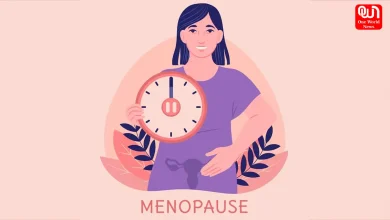Living with PCOS: How to Manage Your Symptoms Through Diet, Exercise, and Mental Health Care
Learn how to manage PCOS with practical tips on balanced diet, effective exercise routines, and mental health care for a healthier, happier life.
Living with PCOS: A Complete Guide to Managing Symptoms Through Diet, Exercise, and Mental Health Strategies for a Balanced Life
Polycystic Ovary Syndrome (PCOS) is among the most common hormonal disorders. Millions of women suffer from this disease throughout the globe. Irregularity in periods, weight gain, acne, excessive hair growth, and fertility problems are some of the symptoms usually exhibited by patients suffering from PCOS. In addition to these signs, it also affects the emotional well-being of the patients, thus causing cases of anxiety and depression. It can be managed holistically: focusing on nutrition, physical exercise, and even something as important, emotional well-being.
Eating for Hormonal Balance
Diet is one of the most effective forms of management of PCOS. Nourishing the body with whole foods instead of starving it: intake must be compensated by the consumption of low glycemic foods which help to stabilize blood sugar levels. Avoid too much intake and consumption of refined sugars and processed carbohydrates as it will rises insulin levels-it is important because most PCOS patients develop insulin resistance.
Read more: National Tea Day- Celebration with Brews, Traditions, and Global Enthusiasm
Integrate healthy fats such as avocados, nuts, seeds, and olive oil-associated fats, which are useful in hormone production. Fiber-rich foods contribute to better digestion and managing a healthy weight-the latter is an important status for PCOS symptom control. Maintaining hydration and eating periodically might prevent cravings and energy crashes.
Exercise Your Body in the Right Manner
Exercise is essential for managing hormonal imbalances in PCOS patients, including weight control, improving insulin sensitivity, and improving hormones controlling moods. For some, it may mean an everyday intense gym routine, but in fact, gentle, regular workouts are just as efficient.
For stress reduction and improved metabolic health, walking, swimming, yoga, and Pilates are the best. Strength training a few times a week means that it helps build muscle to burn fat more efficiently. The key is to find a practice in which you enjoy and can stick with long-term. Over-exercising or pushing oneself too hard creates cortisol to increase in the body, which worsens PCOS symptoms.
Read more: Summer Hydration Hacks: Stay Hydrated Even When Water Is Not Around
Prioritizing of Mental Wellness
PCOS is a condition that not only impacts the body but also affects the mental health of people. Symptoms such as acne, unwanted hair, weight fluctuations, and hormonal imbalances can cause a dip in self-esteem resulting in anxiety and depression among women suffering from PCOS.
Make mental health a priority by practicing mindfulness techniques such as meditation, deep breathing, or journaling. It helps to consult a therapist for assistance in tackling stress and other emotional problems. Build a support system of family, friends, or PCOS communities to share experiences and feel less alone in your journey.
A Holistic Way of Healing
While living with PCOS is lifelong, symptom management is possible with lifestyle modification. Really feed your body wholesome foods, move your body regularly, and take care of your mind as much as your body. Every small step matters: eating in more times than not at home instead of fast food or using some minutes each day to wind down. Balance and patience will manage not only PCOS but truly empower patients to do even more.
We’re now on WhatsApp. Click to join.
Like this post?
Register at One World News to never miss out on videos, celeb interviews, and best reads.








